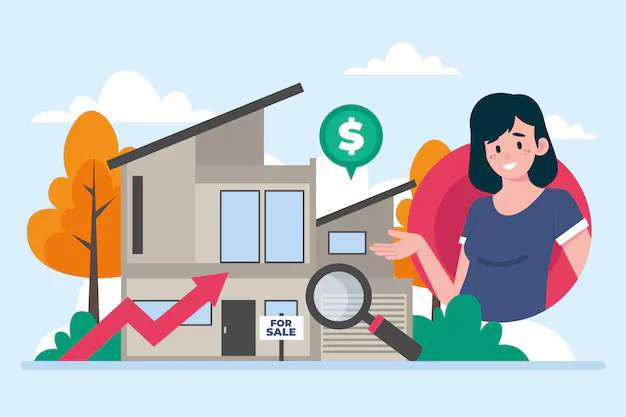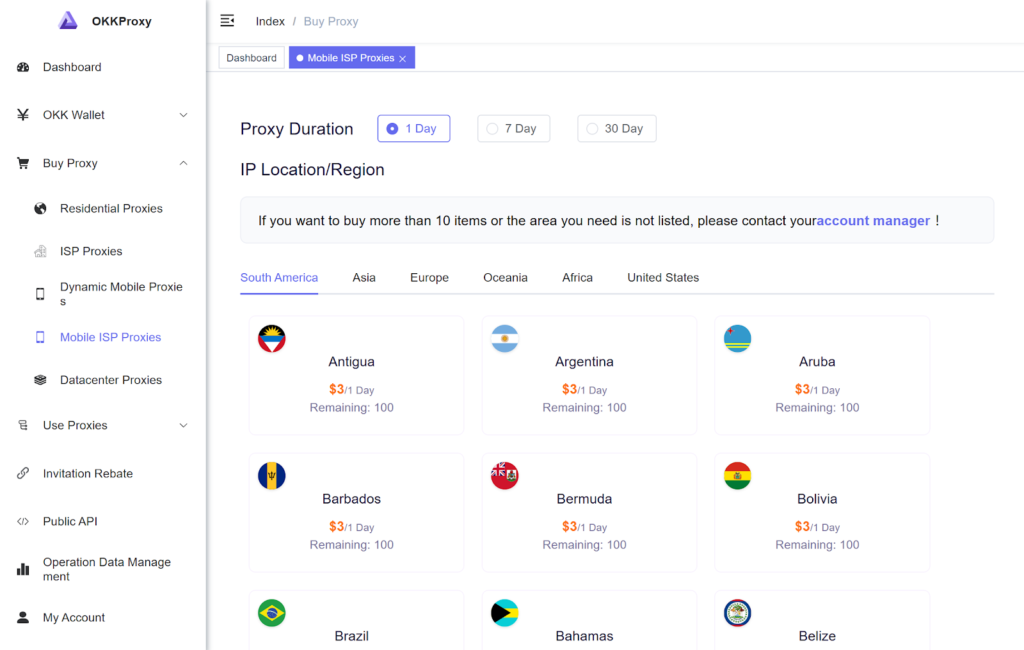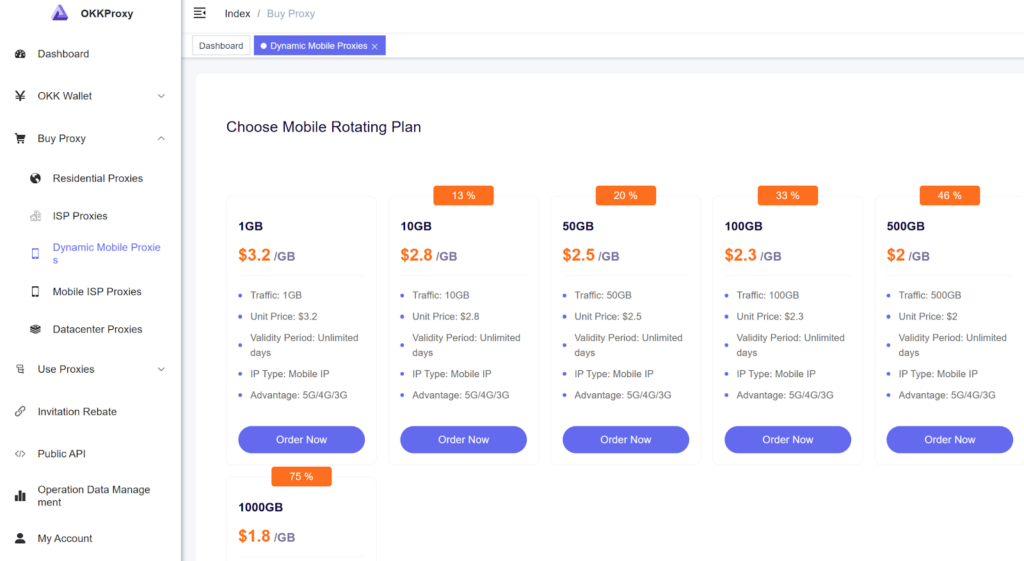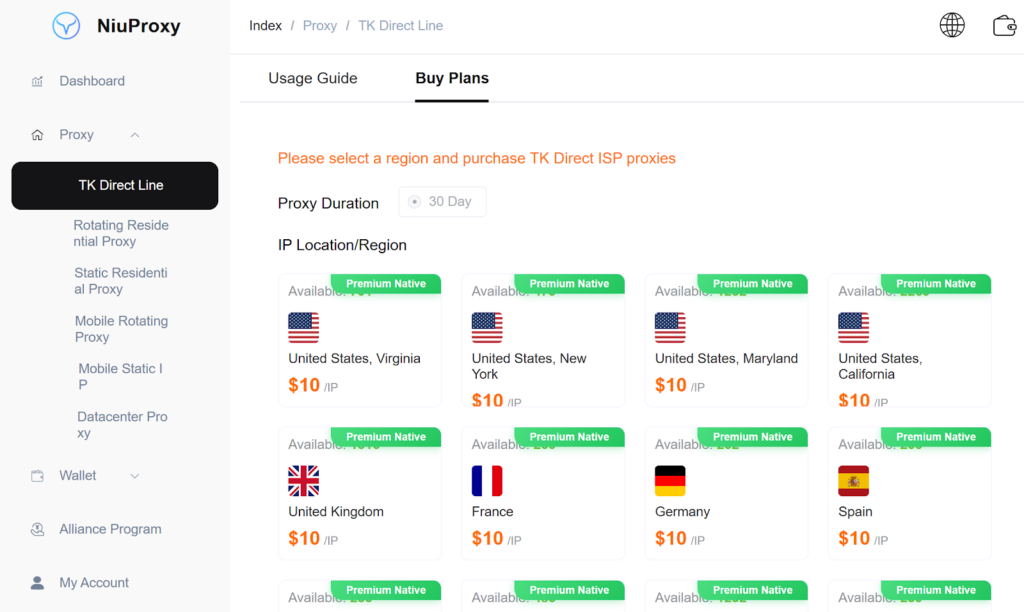Uncategorized
The Pros and Cons of Investing in Rental Properties for Extra Income

Picture waking up to find your bank account a little fuller than it was yesterday – not from your regular paycheck, but from rental income flowing in while you slept. This dream of earning money through property ownership attracts countless hopeful investors. Yet behind the allure of passive income and property appreciation lies a complex world of responsibilities and opportunities that every potential landlord needs to understand about rental properties.
Understanding Investment Landscapes
Today’s investment landscape stretches far beyond traditional savings accounts and stock market strategies. While some investors chase the latest tech stocks or cryptocurrency trends, real estate continues to stand as a cornerstone of wealth building – offering something you can walk through and touch with your own hands.
The modern investor faces an evolving marketplace where technology shapes every decision. Many savvy investors understand the importance of AI for stock trading when building their portfolios, but they also recognize that diversification across different types of assets, including real estate, creates a stronger foundation for long-term wealth creation.
The Pros of Investing in Rental Properties
Steady Income Stream
Monthly rent payments create reliable income that grows your bank account while you focus on other things. This predictable cash flow helps you plan your financial future with confidence. Regular income from tenants can supplement or even replace your day job earnings.
Property investments work harder than money sitting in a savings account. Your rental income could cover the mortgage, and taxes, and still leave profit in your pocket. Over time, rising rents mean your income potential keeps growing.
Property Appreciation
Historically, real estate tends to appreciate in value over the long term. When inflation drives up prices, real estate often maintains its value better than cash in the bank. Over the course of 10 to 20 years, your property could significantly increase in value.
Market ups and downs happen, but patient investors usually come out ahead. A house worth $200,000 today might sell for many more decades from now. This appreciation builds your net worth while tenants help pay the mortgage.
Tax Benefits
The IRS offers property owners several ways to reduce their tax bills. Writing off mortgage interest, property taxes, and maintenance costs puts more money back in your pocket at tax time. Depreciation deductions offer another significant tax benefit unique to rental property investments.
Keeping detailed records throughout the year makes tax season more manageable. An experienced accountant familiar with real estate investing can help you maximize your tax deductions. Their expertise often pays for itself through tax savings.
Long-Term Wealth Building
Your tenants essentially pay your mortgage, building your equity month by month. As property values rise and your loan balance drops, your wealth grows in two ways. The power of leverage means your down payment could multiply into significant wealth over time.
Many successful investors begin with one property and gradually grow their portfolio. Each property adds another source of income and potential appreciation. Real estate offers a path to financial independence for those willing to play the long game.
The Cons of Investing in Rental Properties
High Initial Costs
Getting started in real estate requires substantial initial capital. Beyond the down payment, you’ll need cash for closing costs, repairs, and an emergency fund. These costs can easily reach tens of thousands of dollars.
Unexpected expenses pop up regularly with rental properties. Expenses like a new roof or a broken furnace can significantly impact your rental income. Smart landlords keep cash reserves ready for these inevitable costs.
Property Management Responsibilities
Being a landlord means wearing many hats – maintenance coordinator, accountant, and customer service rep all rolled into one. Late-night maintenance calls and tenant complaints become part of your life. Successful landlords develop systems to handle these ongoing responsibilities.
Screening good tenants takes effort but saves you from potential headaches down the line. Background checks, reference calls, and clear lease agreements help minimize potential problems. Some owners hire property managers, trading lower profits for more free time.
Dealing with Problem Tenants
Even thorough screening can’t prevent all tenant issues. Late rent payments, property damage, and lease violations can cause stress and consume your time. Building a relationship with a good real estate attorney helps protect your interests.
Having clear policies and sticking to them helps manage difficult situations. Documenting every transaction and understanding local landlord-tenant laws is crucial. Sometimes eviction becomes necessary, despite your best efforts at prevention.
Market Fluctuations
Real estate markets experience cycles of growth and contraction, similar to other types of investments. A neighborhood’s fortunes can change quickly, affecting your property’s value and rental rates. Smart investors research local market trends before buying.
Different areas face different risks and opportunities. Job growth, new development, and local laws all impact your investment’s success. Staying well-informed about market conditions allows you to make smarter investment choices.
Growing Your Property Portfolio
Starting small and learning from each property purchase builds wisdom you can’t gain from books. Each new acquisition teaches valuable lessons about what makes a good investment. Your experience helps you spot opportunities others might miss.
Building a rental empire takes patience and careful planning. Some investors partner up to tackle bigger deals they couldn’t handle alone. Reliable contractors, lenders, and advisors become essential as your property portfolio expands.
Financing Options and Strategies
Understanding mortgage options enables you to structure more favorable deals. Traditional banks offer different loan programs for investors, each with its requirements. Your credit score, income, and down payment affect what financing you can access.
Creative financing strategies open doors when conventional loans won’t work. Owner financing, private money, or partnership arrangements offer alternatives. Establishing relationships with local lenders provides you with more financing options for future acquisitions.
Building a Support Network
Successful real estate investors don’t work in isolation. Local real estate investment groups provide education and networking opportunities. Experienced investors often share the wisdom that saves newcomers from costly mistakes.
Finding dependable professionals simplifies property management and ownership. A trustworthy handyman, plumber, and electrician become valuable team members. These relationships help you handle problems quickly and keep tenants happy.
Comparison of Investment Options
| Feature | Rental Properties | Stocks | Bonds |
| Initial Cost | High | Low | Low |
| Income Potential | High | Moderate | Low |
| Time Commitment | High | Low | Low |
| Control | Complete | Limited | None |
| Liquidity | Low | High | Moderate |
Conclusion
A proven path to creating wealth is rental property investing — but you have to invest the time and hard work. The benefits and challenges of being a landlord help you to decide if you can be a landlord as it fits your goals and lifestyle.
This opportunity isn’t for everyone, but those who are willing to learn and put in the effort can build significant wealth through rental property investing. Think about your goals, resources, and how committed you are to investing in real estate before taking that dip. Leaping into rental property ownership may have your future self thanking you.
Frequently Asked Questions
What do I need to start investing in rental homes?
You’re going to need a down payment of no less than 20% to 25% and some extra for costs to close and repairs. Investment properties require a larger down payment most lenders require than a primary home.
Should you hire a property manager?
Think about how much time you value your time and if you have the skills to do the maintenance and tenant issues. Typically, property managers charge you 8-12% of the monthly rent, but save you time and/or stress.
What makes a good rental property?
Focus on locations with strong rental demand and job growth. Look for properties that need minimal repairs and can generate positive cash flow after all expenses.
TECHNOLOGY
Lessons from Growing TikTok Pages: The Power of Dedicated Mobile IPs and Direct Lines in 2026

As someone who’s been deeply involved in TikTok growth strategies for the past few years, I’ve managed dozens of accounts across niches like lifestyle, e-commerce dropshipping, and viral challenges. In 2026, the platform is smarter than ever—shadowbans, account suspensions, and algorithm tweaks hit harder if you’re not careful at growing TikTok pages. What I’ve learned the hard way is that success at scale boils down to one thing: mimicking real mobile users perfectly. That’s where dedicated mobile IPs and specialized direct lines come in. They’ve been game-changers for me, allowing me to grow pages from zero to hundreds of thousands of followers without constant setbacks.
My Early Struggles with TikTok Account Management
When I started farming multiple TikTok accounts in 2023, I relied on cheap datacenter proxies. Big mistake. TikTok’s anti-bot systems flagged them almost immediately—IPs looked suspicious, engagement dropped, and accounts got limited. Switching to basic residential proxies helped a bit, but rotation was too aggressive for long sessions like posting schedules or live streams. I needed something that behaved like a genuine smartphone on cellular data: stable for hours when required, but rotatable to avoid detection during bulk actions.
That’s when I dove into mobile proxies. These use real 4G/5G connections from carriers, giving your traffic the highest trust score possible. No more “data center” fingerprints—TikTok sees you as a legit mobile user.
Discovering Dedicated Mobile IPs for Stability
For accounts that need consistency (think main pages where I handle daily posting, commenting, and analytics), I turned to static mobile proxies—also called dedicated or sticky mobile IPs. These assign you a fixed mobile IP that stays the same for days or weeks, perfect for maintaining sessions without logging out repeatedly.
I started using OKKProxy’s mobile static proxies, which offer real 4G/5G IPs from trusted carriers in over 100 countries. The precision targeting—down to city, state, or even carrier—let me assign location-specific IPs to accounts, making growth feel organic. Response times around 0.5 seconds and unlimited concurrent connections meant I could run multiple devices smoothly. For long-session tasks like TikTok account management, these bypassed risk controls effortlessly. No more random verifications or bans during uploads.

In contrast, for high-volume actions like liking, following, or testing new content across fresh accounts, dynamic options shine.
Dynamic vs. Static Mobile Proxies: Quick Comparison
| Feature | Dynamic Mobile Proxies | Static Mobile Proxies |
| IP Behavior | Automatic rotation (fresh IP per request or interval) | Fixed IP for long sessions |
| Best For | Bulk actions, avoiding rate limits | Account logins, posting, analytics |
| Anonymity Level | High (constant change) | High (persistent sessions) |
| TikTok Use Case | Farming new accounts, automation | Managing established pages |
| Example Provider | OKKProxy Dynamic (600K+ pool) | OKKProxy Static (global 4G/5G) |
OKKProxy’s dynamic mobile proxies became my go-to for rotation-heavy workflows. With over 600K real mobile IPs, HTTP/SOCKS5 support, and sub-0.4s speeds, they handled geo-scraping trends or multi-account engagement without blocks. The 99.99% stability was a lifesaver during peak hours.

The Rise of TikTok-Specific Direct Lines
As TikTok tightened mobile detection in 2025-2026, general mobile proxies weren’t always enough for ultra-sensitive actions. I needed something optimized exclusively for the platform—enter TikTok direct lines.

These are dedicated proxy connections routed through clean, platform-approved mobile paths, often called “TikTok proxy services” or direct residential lines. I discovered Niuproxy, a provider specializing in this. Their TikTok direct line service offers tailored proxies that connect straight through high-trust mobile networks, minimizing latency and maximizing bypass rates for TikTok’s unique fingerprinting.
Niuproxy’s setup was perfect for my automation scripts—direct lines reduced detection to near zero, even when running 50+ accounts simultaneously. Combined with tools for organic growth, it let me scale viral campaigns without shadowbans. If you’re deep into TikTok proxies in 2026, something like Niuproxy’s dedicated TikTok lines is essential for advanced users.
Key Lessons I’ve Learned in 2026
1. Mix Static and Dynamic: Use dedicated mobile IPs (like OKKProxy static) for core accounts and rotating ones for support tasks.
2. Platform-Specific Tools Matter: For pure TikTok focus, add direct lines—Niuproxy excels here.
3. Geo-Targeting is Crucial: Match IPs to your audience’s location to boost algorithm favor.
4. Test Small, Scale Big: Always trial proxies on a few accounts first.
FAQs from My Experience
Q: Are mobile proxies worth the cost for TikTok growth?
A: Yes — especially in 2026. Real mobile proxies (4G/5G) significantly reduce the risk of TikTok account bans and shadowbans, helping you maintain long-term account stability while growing safely.
Q: How do I avoid TikTok bans with proxies?
A: Stick to real 4G/5G mobile IPs, rotate wisely, and use direct lines for TikTok-heavy workflows.
Q: What’s better—general mobile proxies or TikTok-specific?
A: Both. OKKProxy for broad mobile needs; Niuproxy for specialized TikTok direct access.
Final Thoughts
Growing TikTok pages in 2026 demands smart tools growing TikTok pages. Dedicated mobile IPs and direct lines have powered my biggest wins, turning frustrating bans into consistent gains. If you’re managing multiple accounts or automating at scale, start with reliable mobile proxies for TikTok like those from OKKProxy, and layer in TikTok-specific services like Niuproxy’s direct lines. It’s not just about more traffic—it’s about smarter, undetectable access.
Uncategorized
Barbells and Beyond: The Allure of Apadravya Piercing

Apadravya piercing is a type of genital piercing primarily performed on the penis. It involves the insertion of a barbell horizontally through the glans of the penis, passing through the urethra. This piercing is known for its aesthetic appeal and potential enhancement of sexual pleasure.
The History and Cultural Significance of Apadravya Piercing
The practice of genital piercing dates back centuries and holds cultural significance in various societies worldwide. Historically, genital piercings were associated with rituals, rites of passage, or markers of social status. In some cultures, genital piercings were believed to enhance fertility or sexual potency.
Understanding the Procedure
Preparing for Apadravya Piercing
Before undergoing an Apadravya piercing, it’s crucial to choose a reputable and experienced piercer. Additionally, proper hygiene and genital grooming are essential to reduce the risk of infection during and after the procedure.
The Piercing Process
During the piercing process, the piercer will clean and sterilize the genital area before marking the entry and exit points for the piercing. Local anesthesia may be administered to minimize discomfort. The piercing needle is then carefully inserted, followed by the insertion of the barbell.
Aftercare and Healing
After the piercing, diligent aftercare is essential to promote proper healing and reduce the risk of complications. This includes cleaning the piercing with saline solution, avoiding sexual activity or rough handling of the piercing, and wearing loose-fitting clothing to prevent irritation.
Pain, Risks, and Safety Concerns
While Apadravya piercing is generally considered safe when performed by a professional, it is not without risks. Pain levels vary from person to person, but most individuals report moderate discomfort during the procedure and mild to moderate pain during the healing process.
Choosing Jewelry for Apadravya Piercing
Selecting the right jewelry for an Apadravya piercing is crucial for both aesthetics and comfort. Surgical-grade stainless steel or titanium barbells are commonly recommended due to their biocompatibility and durability.
ALSO READ: THIGH TATTOOS: A CANVAS OF EXPRESSION AND STYLE
Apadravya Piercing: Myths vs. Facts
There are many misconceptions surrounding Apadravya piercing, including beliefs about pain, sexual function, and hygiene. It’s essential to separate fact from fiction to make informed decisions about genital piercing.
Pros and Cons of Apadravya Piercing
Like any form of body modification, Apadravya’s piercing has its advantages and disadvantages. Pros may include aesthetic appeal, potential sexual enhancement, and personal expression, while cons may include pain, risks of infection, and social stigma.
Conclusion
Apadravya piercing is a significant form of self-expression and body modification with a rich history and cultural significance. By understanding the procedure, risks, and aftercare involved, individuals can make informed decisions about whether Apadravya piercing is right for them.
ALSO READ: MEMENTO VIVERE TATTOO: A TIMELESS REMINDER
FAQs
What is Apadravya?
Apadravya is a genital piercing where a barbell is inserted horizontally through the glans of the penis, passing through the urethra. It is valued for its aesthetic appeal and potential sexual enhancement.
Is Apadravya piercing painful?
Pain levels vary, but most people experience moderate discomfort during the procedure and mild to moderate pain while healing. Proper aftercare can help alleviate discomfort.
How can I find a reputable piercer for Apadravya piercing?
Look for experienced piercers with positive reviews and strict hygiene standards. Check their portfolio and ask about their sterilization practices before making an appointment.
Are there age restrictions for getting an Apadravya piercing?
Typically, individuals must be at least 18 years old. Some piercers may require parental consent for minors.
Can Apadravya’s piercing affect sexual function?
While rare, complications like nerve damage or scarring can affect sexual function. It’s important to consult with a qualified piercer about any potential risks.
Uncategorized
The Game Archives Gameverse Unveiled

Welcome to the exciting world of Game Archives Gameverse, where gaming history meets cutting-edge technology to create a gaming platform like no other. Dive into this immersive universe where classic games and modern innovations collide to offer gamers an unparalleled experience. Join us as we explore the evolution, features, successful case studies, and future plans of the Game Archives Gameverse – your gateway to endless gaming possibilities!
The History and Evolution of Game Archives
The history and evolution of game archives is a fascinating journey through the digital landscape of gaming. It all began with humble beginnings, where gamers sought ways to preserve their favorite games for future enjoyment. As technology advanced, so did the methods of archiving these virtual worlds.
From early floppy disks to CDs and DVDs, game archives have come a long way in preserving gaming classics. The transition to online platforms revolutionized how games were stored and accessed by players worldwide. This shift paved the way for more efficient archiving systems that could house vast libraries of games.
With each new innovation, game archives expanded their reach and capabilities, ensuring that beloved titles would not be lost to time. Today, the Game Archives Gameverse stands as a testament to this rich history, providing a platform where gamers can explore a treasure trove of timeless classics and modern favorites alike.
Features and Benefits of Using Gameverse
Gameverse offers a multitude of features that cater to both gamers and game developers alike. One key feature is its user-friendly interface, making navigation seamless for users of all levels. With Gameverse, players can discover a wide array of games from various genres in one centralized platform.
Another benefit is the personalized experience it provides. By curating game recommendations based on individual preferences, Gameverse enhances the gaming journey for each user. Additionally, the platform fosters community engagement through forums and social sharing options.
For developers, Gameverse offers a valuable opportunity to showcase their creations to a diverse audience. The platform’s analytics tools provide insightful data on player behavior and preferences, aiding developers in refining their games for optimal performance.
Furthermore, Gameverse supports cross-platform compatibility, allowing games to reach a broader audience across different devices. This flexibility not only benefits developers but also ensures accessibility for players wherever they may be.
How to Access and Use the game archives Gameverse?
To access the Game Archives Gameverse platform, simply visit their website and create an account. Once registered, you can browse through a diverse collection of games spanning various genres and platforms. The user-friendly interface allows for easy navigation, making it simple to discover new titles or revisit old favorites.
Using Gameverse is straightforward – select a game from the library and start playing instantly without any downloads or installations required. The platform offers seamless gameplay with no interruptions or lags, ensuring a smooth gaming experience for all users. Engage in single-player campaigns, multiplayer matches, or explore interactive storytelling adventures at your convenience.
Furthermore, Game Archives provides regular updates and additions to its game library so that players always have fresh content to enjoy. Whether you’re a casual gamer looking for quick entertainment or a dedicated player seeking immersive experiences, Gameverse has something for everyone.
Case Studies: Successful Games on the Gameverse Platform
Dive into the world of Gameverse, where successful games come to shine. One standout example is “Galactic Quest,” a space exploration game that captivated players with its stunning visuals and immersive gameplay. With Gameverse’s user-friendly interface, “Galactic Quest” quickly gained a loyal following.
Another hit on the platform is “Fantasy Realms,” an epic adventure game that transported players to magical realms filled with mythical creatures and quests. The seamless integration of in-game rewards through Gameverse kept players engaged and coming back for more.
“Virtual Racer,” a high-speed racing simulation, also found success on Gameverse by offering realistic driving mechanics and multiplayer competitions. Players could easily connect with friends and compete in adrenaline-pumping races.
These case studies illustrate how Gameverse has become a hub for innovative and engaging gaming experiences, attracting both developers and gamers alike.
Future Plans for Game Archives and the Gameverse
Exciting times lie ahead for the Game Archives and its innovative Gameverse platform. The future plans aim to expand the library of games available, offering a diverse range of genres to cater to all gamers’ preferences. Collaborations with indie developers are in the pipeline, fostering creativity and bringing fresh, unique gaming experiences to users.
Enhancements in user interface and experience are on the horizon, ensuring seamless navigation and immersive gameplay. Integration of new technologies such as VR and AR will elevate gaming interactions to a whole new level, promising an exciting evolution in virtual entertainment.
Community engagement initiatives will be a key focus moving forward, with tournaments, challenges, and events planned to foster camaraderie among players. Feedback mechanisms will also be enhanced to gather valuable insights from users for continuous improvement and innovation within the Gameverse ecosystem.
Stay tuned as Game Archives continues its journey towards shaping the future of gaming through cutting-edge technology and unprecedented user experiences. The possibilities are endless, making every gamer’s dream adventure just a click away!
Conclusion
In a dynamic gaming landscape where innovation is key, the Game Archives Gameverse emerges as a beacon of creativity and ingenuity. With its rich history, diverse features, and promising future plans, it is evident that the platform is set to revolutionize how gamers engage with their favorite titles.
As we delve deeper into the world of Gameverse, it becomes apparent that this platform offers more than just a place to play games—it fosters community, encourages exploration, and provides a space for both developers and players to thrive. The success stories showcased on Gameverse serve as testaments to its effectiveness in elevating gaming experiences.
Looking ahead, the future of Game Archives and the Gameverse holds boundless possibilities. With a commitment to constant improvement and adaptation to meet evolving needs in the gaming industry, this platform is poised for continued growth and success.
So whether you’re a seasoned gamer or just starting your journey into the world of interactive entertainment, consider exploring what the Game Archives Gameverse has to offer. It’s not just about playing games; it’s about embracing an immersive gaming experience like never before. Join us on this exciting adventure through digital realms where possibilities are endless!
What is “The Game Archives Gameverse”?
The Game Archives Gameverse is a revolutionary platform uniting classic and modern games in one immersive digital universe. It offers a centralized hub where gamers can explore, play, and discover a diverse array of gaming experiences.
Why are Game Archives important for gamers?
Game Archives preserve gaming history by storing and making accessible older games that might otherwise be lost. They provide a treasure trove of nostalgia and educational value while ensuring these games remain playable for future generations.
How does the Gameverse enhance gaming experiences?
Gameverse enriches gaming experiences through its user-friendly interface and curated game collections. It offers personalized recommendations, community engagement features, and seamless gameplay across multiple platforms.
Can developers benefit from the Game Archives Gameverse?
Yes, developers can showcase their games to a wide audience, gather player insights through analytics, and foster community interaction. The platform supports indie developers and promotes creativity in game development.
What are the future plans for the Game Archives Gameverse?
Future plans include expanding the game library with diverse genres, integrating new technologies like VR and AR, enhancing user interface and experience, and fostering community through tournaments and events.

 HOME IMPROVEMENT11 months ago
HOME IMPROVEMENT11 months agoThe Do’s and Don’ts of Renting Rubbish Bins for Your Next Renovation

 BUSINESS12 months ago
BUSINESS12 months agoExploring the Benefits of Commercial Printing

 BUSINESS12 months ago
BUSINESS12 months agoBrand Visibility with Imprint Now and Custom Poly Mailers

 HEALTH8 months ago
HEALTH8 months agoThe Surprising Benefits of Weight Loss Peptides You Need to Know

 TECHNOLOGY10 months ago
TECHNOLOGY10 months agoDizipal 608: The Tech Revolution Redefined

 HEALTH7 months ago
HEALTH7 months agoYour Guide to Shedding Pounds in the Digital Age

 HOME IMPROVEMENT7 months ago
HOME IMPROVEMENT7 months agoGet Your Grout to Gleam With These Easy-To-Follow Tips

 HEALTH11 months ago
HEALTH11 months agoHappy Hippo Kratom Reviews: Read Before You Buy!












